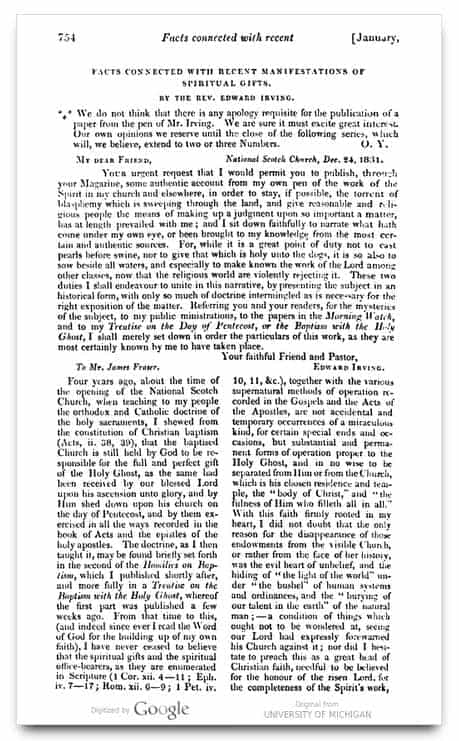A digitization of Edward Irving’s first defense in Fraser’s Magazine on his promotion of unknown tongues.
Reverend Edward Irving and his central London congregation (1830s) were the center of world-wide religious attention on the topic and practice of speaking in tongues. The result was that he received heavy criticism from a variety of sources.
Irving sought to counter claims against him and his church by publishing three articles in a popular English publication called Fraser’s Magazine. All three works are digitally captured for the Gift of Tongues Project. The following is his first entry.
———-
Facts Connected with Recent Manifestations of Spiritual Gifts.
By the Rev. Edward Irving.
